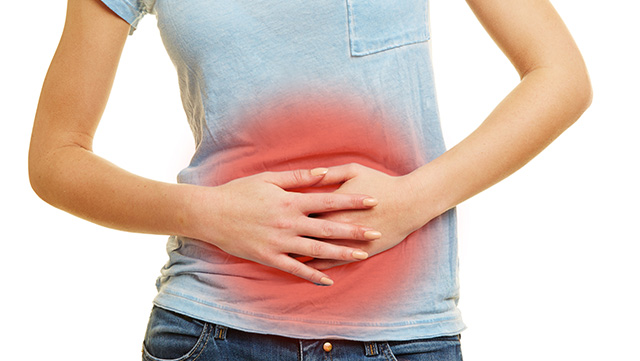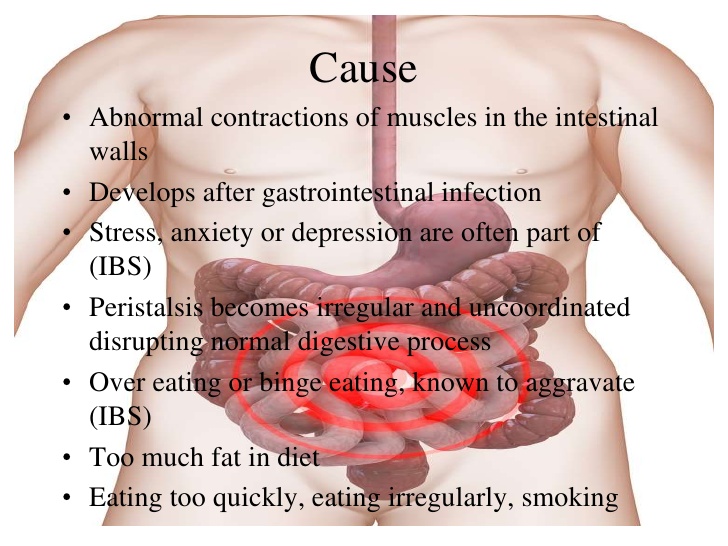Irritable Bowel Syndrome (IBS) Treatment
Irritable Bowel Syndrome (IBS) Treatment in Pune, Kolhapur, Aurangabad – Dr Girish Bapat
IRRITABLE BOWEL SYNDROME (IBS):
Irritable Bowel Syndrome (IBS) is a common digestive condition causing stomach cramps, bloating, diarrhea, and/or constipation. Symptoms vary, affecting people differently and often linked to stress or certain foods. Symptoms fluctuate over time, improving after bowel movements. IBS affects up to 1 in 5 people, usually emerging between ages 20-30, with more women affected than men. While most have mild symptoms, some require medication and counselling, while others manage symptoms through diet, lifestyle, and stress management.
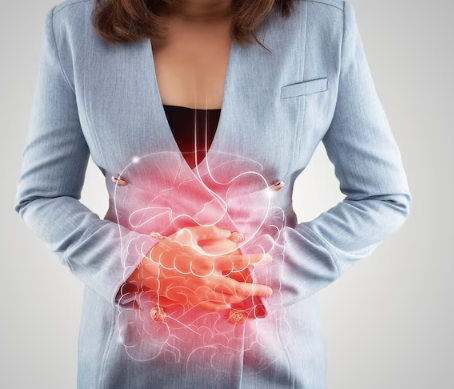
Irritable Bowel Syndrome (IBS)
Irritable bowel syndrome (IBS) is a common, long-term condition of the digestive system. It can cause bouts of stomach cramps, bloating, diarrhoea and/or constipation. The symptoms vary between individuals and affect some people more severely than others. They tend to come and go in periods lasting a few days to a few months at a time, often during times of stress or after eating certain foods. You may find that some of the symptoms improve after passing motions. IBS is thought to affect up to one in five people at some point in their life, and it usually first develops when a person is between 20 and 30 years of age. Around twice as many women are affected as men. Only a small number of people with irritable bowel syndrome have severe signs and symptoms. Some people can control their symptoms by managing diet, lifestyle and stress. Others will need medication and counselling.
Symptoms:
The symptoms of IBS are usually worse after eating and tend to come in episodes. Most people have flare-ups of symptoms that last a few days. After this time, the symptoms usually improve, but may not disappear completely.
In some people, the symptoms seem to be triggered by something they have had to eat or drink. Main symptoms the most common symptoms of IBS are:
- Abdominal (stomach) pain and cramps, which may be relieved by passing stools
- A change in your bowel habits – such as diarrhoea, constipation, or sometimes both
- Bloating and swelling of your stomach
- Excessive wind or gas
- Experiencing an urgent need to go to the toilet
- A feeling that you have not fully emptied your bowels after going to the toilet.
- Passing mucus or slime with your stools.
The symptoms of Irritable Bowel Syndrome can have a significant impact on a person’s quality of life and can have a deep psychological impact. As a result, many people with the condition suffer from depression and anxiety.
Triggering factors:
The exact cause of irritable bowel syndrome (IBS) is unknown, but most experts think that it’s related to problems with digestion and increased the sensitivity of the gut. Many causes have been suggested – including inflammation, infections and certain diets – but none have been proven to directly lead to IBS.
Problems with digestion
Your body usually moves food through your digestive system by squeezing and relaxing the muscles of the intestines in a rhythmic way. However, in irritable bowel syndrome, it’s thought that this process is altered, resulting in food moving through your digestive system either too quickly or too slowly. If food moves through your digestive system too quickly it causes diarrhoea, because your digestive system does not have enough time to absorb water from the food. If food moves through your digestive system too slowly it causes constipation, as too much water is absorbed, making your stools hard and difficult to pass. It may be that food does not pass through the digestive systems of people with IBS properly because the signals that travel from the brain to the gut are disrupted in some way. Increased gut sensitivity many sensations in the body come from your digestive system. For example, nerves in your digestive system relay signals to your brain to let you know if you are hungry or full, or if you need to go to the toilet. Some experts think that people with irritable bowel syndrome may be oversensitive to the digestive nerve signals. This means mild indigestion that is barely noticeable in most people becomes a distressing abdominal (stomach) pain in those with irritable bowel syndrome.
Psychological factors
There is also some evidence to suggest that psychological factors play an important role in irritable bowel syndrome. Intense emotional states such as stress and anxiety can trigger chemical changes that interfere with the normal workings of the digestive system. This does not just happen in people with irritable bowel syndrome. Many people who have never had irritable bowel syndrome before can have a sudden change in bowel habits when faced with a stressful situation, such as an important exam or job interview. Some people with irritable bowel syndrome have experienced a traumatic event, usually during their childhood, such as abuse, neglect, a serious childhood illness or bereavement. It is possible that these types of difficult experiences in your past may make you more sensitive to stress and the symptoms of pain and discomfort.
IBS triggers
Certain foods and drinks can trigger the symptoms of IBS. Triggers vary from person to person, but common ones include:
• alcohol
• cold drinks
• chocolate, ice creams
• drinks that contain caffeine – such as tea, coffee or cold drinks (coke, Pepsi)
• processed snacks – such as crisps and biscuits
• fatty or fried food
Keeping a food diary may be a useful way of identifying possible triggers in your diet. Stress is another common trigger of irritable bowel syndrome symptoms. Therefore, finding ways to manage stressful situations is an important part of treating the condition.
Diagnosis:
A diagnosis of irritable bowel syndrome depends largely on a complete medical history and physical examination. A diagnosis of IBS will then be considered if you have stomach pain or discomfort that is either relieved by passing stools or is associated with a need to go to the toilet frequently or a change in the consistency of your stools.
This should be accompanied by at least two of the following four symptoms:
• a change in how you pass stools – such as needing to strain, feeling a sense of urgency or feeling you have not emptied your bowels properly
• bloating, hardness or tension in your stomach
• your symptoms get worse after eating
• passing mucus or slime with stools
We may recommend several tests, to rule out infection or problems with your intestine’s ability to take in the nutrients from food (malabsorption). You may undergo a number of tests to rule out other causes such as cancer.
• Flexible sigmoidoscopy. This test examines the lower part of the colon (sigmoid) with a flexible, lighted tube (sigmoidoscope).
• Colonoscopy. In some cases, especially if you are age 50 or older or have other signs of a potentially more serious condition, your doctor may perform this diagnostic test in which a small, flexible tube is used to examine the entire length of the colon.
• Computerized tomography (CT) scan. CT scans produce cross-sectional X-ray images of internal organs. CT scans of your abdomen and pelvis may help your doctor rule out other causes of your symptoms, especially if you have abdominal pain.
• Lactose intolerance tests. Lactase is an enzyme you need to digest the sugar found in dairy products. If you don’t produce this enzyme, you may have problems similar to those caused by irritable bowel syndrome, including abdominal pain, gas and diarrhoea.
• Blood tests. Celiac disease is sensitivity to wheat, barley and rye protein that may cause signs and symptoms like those of irritable bowel syndrome. Blood tests can help rule out this disorder. Children with IBS have a far greater risk of celiac disease than do children who don’t have IBS. If your doctor suspects that you have celiac disease, he or she may perform an upper endoscopy to obtain a biopsy of your small intestine.
• Stool tests. If you have chronic diarrhoea, doctors may want to examine your stool for bacteria or parasites.
Treatment:
The symptoms of irritable bowel syndrome (IBS) can often be managed by changing your diet and lifestyle. In some cases, medication or psychological treatments may also be helpful.
IBS-friendly diet Changing your diet will play an important part in controlling your symptoms of IBS. The diet that works best for you will depend on your symptoms and how you react to different foods. It may be helpful to keep a food diary and record whether certain foods make your symptoms better or worse. You can then avoid foods that trigger your symptoms. However, it’s important to remember that these foods will not necessarily need to be avoided for life.
Fibre
People with IBS are often advised to modify the amount of fibre in their diet. There are two main types of fibre: soluble fibre (which the body can digest) and insoluble fibre (which the body cannot digest). Foods that contain soluble fibre include:
• oats
• barley
• rye
• fruit – such as bananas and apples
• root vegetables – such as carrots and potatoes
Foods that contain insoluble fibre include:
• whole grain bread
• bran
• cereals
• nuts and seeds
If you have diarrhoea, you may find it helps to cut down on the insoluble fibre you eat. It may also help to avoid the skin, pith and pips from fruit and vegetables.
If you have constipation, increasing the amount of soluble fibre in your diet and the amount of water you drink can help. The dietician at CALOMS may be able to advise on what your recommended fibre intake should be.
Low FODMAP diet If you experience persistent or frequent bloating, a special diet called the low FODMAP diet can be effective. FODMAP stands for fermentable oligosaccharides, disaccharides, monosaccharides and polyols. These are types of carbohydrates that aren’t easily broken down and absorbed by the gut. This means they start to ferment in the gut relatively quickly, and the gases released during this process can lead to bloating. A low FODMAP diet essentially involves restricting your intake of various foods that are high in FODMAPs, such as some fruits and vegetables, animal milk, wheat products and beans. If you want to try the low FODMAP diet, it’s best to do so under the guidance of a professional dietitian, who can ensure your diet is still healthy and balanced.
General eating tips
Your IBS symptoms may also improve by:
• having regular meals and taking your time when eating
• not missing meals or leaving long gaps between eating
• drinking at least 1/2 to 3 litres of water a day.
• restricting your tea and coffee intake to a maximum of two cups a day
• reducing the amount of alcohol and fizzy (e.g. Pepsi, Coke) drinks.
• reducing your intake of resistant starch (starch that resists digestion in the small intestine and reaches the large intestine intact), which is often found in processed or re-cooked foods
• limiting fresh fruit to three portions a day – a suitable portion would be an apple
• if you have diarrhoea, avoiding sorbitol, an artificial sweetener found in sugar-free sweets, including chewing gum and drinks, and in some diabetic and slimming products
• if you have wind (flatulence) and bloating, it may help to eat oats (such as oat-based breakfast cereal or porridge) and linseeds (up to one tablespoon a day)
Exercise
Many people find that exercise helps to relieve the symptoms of IBS.
Aim to do a minimum of 150 minutes of moderate-intensity aerobic activity, such as cycling or fast walking, every week.
The exercise should be strenuous enough to increase your heart and breathing rates.
Reducing stress
Reducing your stress levels may also reduce the frequency and severity of your IBS symptoms. Some ways to help relieve stress include:
• relaxation techniques – such as meditation or breathing exercises
• physical activities – such as yoga, pilates or tai chi
• regular exercise – such as walking, running or swimming
If you are particularly stressed, you may benefit from a talking therapy, such as stress counselling or cognitive behavioural therapy (CBT).
Probiotics
Probiotics are dietary supplements that product manufacturers claim can help improve digestive health. They contain so-called “friendly bacteria” that can supposedly restore the natural balance of your gut bacteria when it has been disrupted. Some people find taking probiotics regularly helps to relieve the symptoms of IBS. If you want to try a probiotic product, you should take it for at least four weeks to see if your symptoms improve.
A number of different medications can be used to help treat IBS, including:
• antispasmodics – which help reduce abdominal (stomach) pain and cramping
• laxatives – which can help relieve constipation
• antimotility medicines – which can help relieve diarrhoea
• low-dose antidepressants – which were originally designed to treat depression, but can also help reduce stomach pain and cramping independent of any antidepressant effect
These medications are discussed in more detail below. Antispasmodics work by helping to relax the muscles in your digestive system. Examples of antispasmodic medicines include mebeverine and therapeutic peppermint oil. Side effects associated with antispasmodics are rare. However, people taking peppermint oil may have occasional heartburn and irritation on the skin around their bottom. Laxatives Bulk-forming laxatives are usually recommended for people with IBS-related constipation. They make your stools softer, which means they are easier to pass. It’s important to drink plenty of fluids while using a bulk-forming laxative. This will help prevent the laxative from causing an obstruction in your digestive system.
Antimotility medicines
The antimotility medicine loperamide is usually recommended for IBS-related diarrhoea. Loperamide works by slowing contractions of muscles in the bowel, which slows down the speed at which food passes through your digestive system. This allows more time for your stools to harden and solidify.
Psychological treatments
There are several different types of psychological therapy. They all involve teaching you techniques to help you control your condition better, and there is good evidence to suggest they may help some people with IBS. Psychological treatments that may be offered to people with IBS include:
• psychotherapy – a type of therapy that involves talking to a trained therapist to help you to look deeper into your problems and worries
• cognitive behavioural therapy (CBT) – a type of psychotherapy that involves examining how beliefs and thoughts are linked to behaviour and feelings and teaches ways to alter your behaviour and way of thinking to help you cope with your situation
• hypnotherapy – where hypnosis is used to change your unconscious mind’s attitude towards your symptoms Complementary therapies
Some people claim therapies such as acupuncture and reflexology can help people with IBS.
TREATMENT for IBS:
 Dietary Modifications:
Dietary Modifications:
- Gradually increase dietary fibre intake to promote regular bowel movements and ease constipation.
- Avoid large meals and instead opt for smaller, more frequent meals.
- Limit or avoid foods that commonly trigger symptoms, such as fatty foods, spicy foods, caffeine, alcohol, and artificial sweeteners.
 Hydration:
Hydration:
- Drink plenty of water throughout the day to maintain proper hydration and support digestion.
- Regular Exercise:
- Engage in regular physical activity to promote healthy digestion and reduce stress.

Stress Management:
- Practice stress-reduction techniques such as deep breathing, meditation, yoga, or progressive muscle relaxation.
- Engage in hobbies and activities you enjoy to help reduce stress levels.
 Adequate Sleep:
Adequate Sleep:
- Establish a consistent sleep schedule to ensure you’re getting enough quality sleep each night.
 Mindful Eating:
Mindful Eating:
- Eat slowly and mindfully, paying attention to your body’s hunger and fullness cues.
 Limit Caffeine and Alcohol:
Limit Caffeine and Alcohol:
- Reduce or avoid caffeine and alcohol consumption, as they can irritate the digestive system.
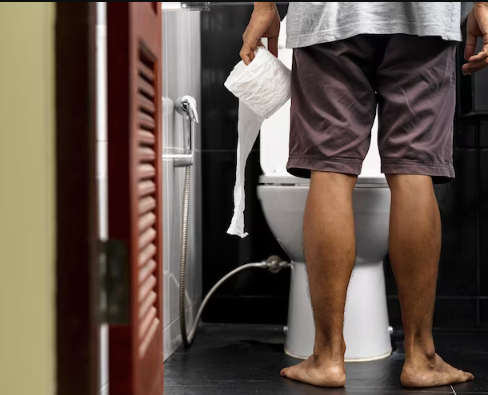 Regular Bowel Habits:
Regular Bowel Habits:
- Aim to have regular bowel movements by setting aside time for bathroom breaks after meals.
F.A.Q
- Stomach cramps or abdominal pain
- Bloating and excessive gas
- Mucus in stool
- Urgency to have a bowel movement
- Feeling of incomplete bowel movement
- Change in bowel habits – such as diarrhoea, constipation, or sometimes both
Triggers for Irritable Bowel Syndrome (IBS) symptoms can vary from person to person, but here are some common factors that can trigger or worsen IBS symptoms:
- Dietary Factors:
- Certain foods, such as fatty foods, spicy foods, dairy products, caffeine, and artificial sweeteners, can trigger symptoms.
- High intake of gas-producing foods like beans, cabbage, and carbonated drinks.
- Stress and Emotional Factors:
- Stress, anxiety, and emotional factors can lead to IBS flare-ups.
- Emotional events or significant life changes can exacerbate symptoms.
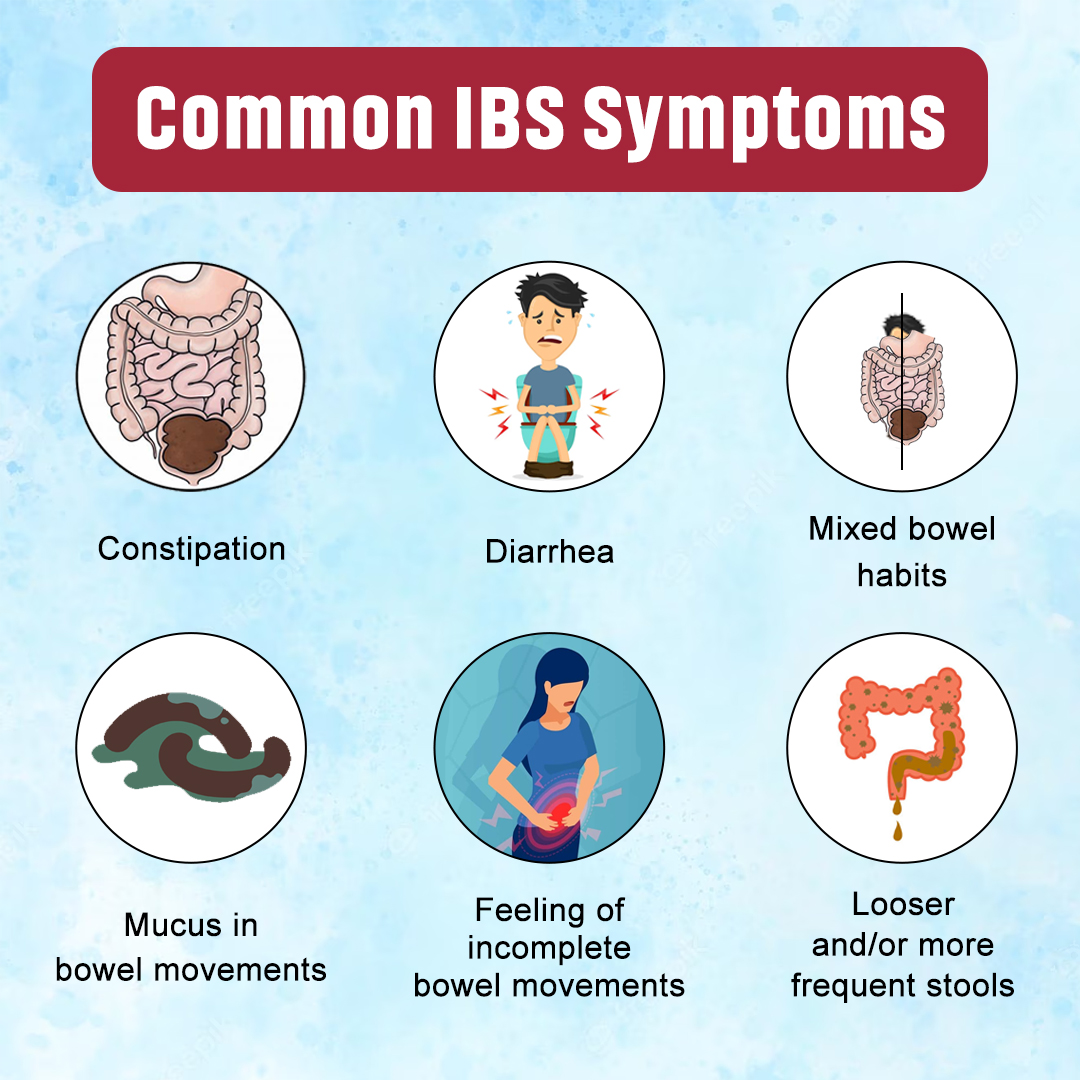
- Hormonal Changes:
- Hormonal fluctuations, particularly in women during their menstrual cycle, can influence IBS symptoms.
-
Gastrointestinal Infections:
- Previous bacterial or viral infections can trigger IBS symptoms in some individuals.
-
Medications:
- Certain medications, particularly antibiotics and medications affecting gut motility, can impact IBS symptoms.
-
Lifestyle Factors:
- Lack of regular physical activity and poor sleep patterns can influence IBS symptoms.

